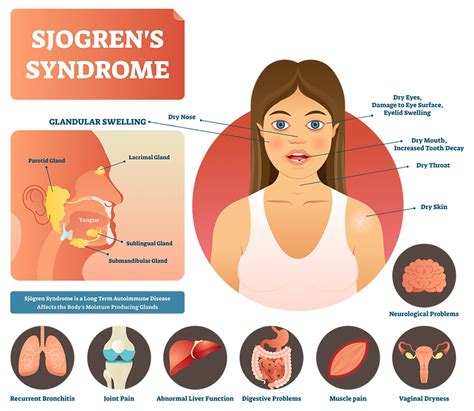Cognitive Distortions Guide: Identify & Overcome

Identifying and overcoming cognitive distortions is a crucial step in developing a more rational and balanced thought process. Cognitive distortions refer to the systematic patterns of deviation from norm or rationality in judgment, whereby inferences about other people and situations may be drawn in an illogical fashion. These distortions can lead to inaccurate or unhelpful thinking,which in turn can lead to emotional distress, unproductive behaviors, and problems in personal and professional relationships.
Understanding Cognitive Distortions
Cognitive distortions were first introduced by psychologist Aaron T. Beck and later expanded upon by David D. Burns. They are irrational or exaggerated thought patterns that can influence behavior negatively and are linked to various mental health issues, including depression, anxiety, and personality disorders. Recognizing these distortions is the first step towards overcoming them and achieving a more balanced and constructive mindset.
Common Types of Cognitive Distortions
- All-or-Nothing Thinking: Viewing situations in absolute terms, as either all good or all bad, without considering the middle ground.
- Overgeneralization: Drawing broad, generalized conclusions based on a single incident or piece of evidence.
- Mental Filter: Focusing exclusively on the negative aspects of a situation while ignoring the positive.
- Disqualifying the Positive: Downplaying or dismissing positive experiences or qualities, insisting that they “don’t count” for some reason.
- Jumping to Conclusions: Assuming the worst or making negative interpretations without evidence.
- Magnification (Catastrophizing) or Minimization: Exaggerating the importance or impact of things (e.g., “This is a total disaster”) or minimizing them (e.g., “It’s no big deal”).
- Emotional Reasoning: Assuming that because something feels true, it must be true.
- Should Statements: Believe that things should be a certain way, and becoming upset or frustrated when this is not the case.
- Labeling and Mislabeling: Assigning a negative or unfair label to someone based on a single action or event, or making sweeping generalizations based on limited information.
- Personalization: Believing that everything is about you and taking everything personally.
Strategies for Overcoming Cognitive Distortions
Overcoming cognitive distortions requires a combination of awareness, self-reflection, and intentional practice in challenging and changing these patterns of thinking. Here are several strategies to help you begin this process:
Mindfulness and Self-Awareness: Start by cultivating mindfulness and increasing your awareness of your thoughts, feelings, and reactions in various situations. The better you understand your own thought patterns, the easier it will be to identify distortions.
Keep a Thought Diary: Writing down your thoughts, especially those that trigger strong emotions, can help you identify specific distortions. Reviewing these entries later can provide insights into patterns and recurring distortions.
Challenge Negative Thoughts: Once you’ve identified a distortion, challenge it by questioning its validity. Ask yourself if the thought is really true, if there’s another way to look at the situation, and what evidence you have for the thought.
Practice Cognitive Restructuring: This involves identifying distortions, challenging them, and then replacing them with more balanced, constructive thoughts. It’s about learning to think in a more realistic and positive way.
Seek Support: Sometimes, overcoming cognitive distortions can be challenging on your own. Consider seeking help from a mental health professional, such as a cognitive-behavioral therapist, who can provide guidance and support in addressing these thought patterns.
Develop a Growth Mindset: Embracing challenges and viewing failures as opportunities for growth can help mitigate the impact of cognitive distortions. A growth mindset encourages resilience and more adaptive thinking patterns.
Engage in Self-Compassion: Treat yourself with kindness, understanding, and patience. Recognize that everyone has cognitive distortions and that working to overcome them is a process.
Conclusion
Cognitive distortions are common patterns of thinking that can lead to distress and unproductive behaviors. However, by developing awareness, challenging these distortions, and practicing more balanced thinking, individuals can work towards overcoming them. This process requires patience, persistence, and sometimes professional help. The journey towards a more rational and balanced thought process is not only beneficial for mental health but can also lead to more fulfilling personal and professional lives.
How can I identify cognitive distortions in my daily life?
+Identifying cognitive distortions starts with self-awareness and mindfulness. Pay attention to your thoughts, especially those that lead to strong emotions. Ask yourself if these thoughts are based on facts or if they might be exaggerated or unhelpful. Keeping a thought diary can also be beneficial in tracking and analyzing your thoughts over time.
Can cognitive distortions be completely eliminated?
+While it’s challenging to completely eliminate cognitive distortions, as they are often deeply ingrained, it is possible to significantly reduce their impact. Through continuous practice of self-reflection, challenging negative thoughts, and adopting more balanced thinking patterns, individuals can learn to manage and minimize cognitive distortions.
How does overcoming cognitive distortions improve mental health?
+Overcoming cognitive distortions can significantly improve mental health by reducing the frequency and impact of negative thoughts, which are often linked to conditions such as depression and anxiety. By adopting more realistic and positive thinking patterns, individuals can enhance their resilience, improve their emotional well-being, and develop more constructive coping mechanisms for dealing with life’s challenges.



